Diversity
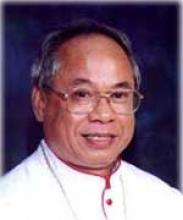

My flight home from Phoenix over the weekend got pushed back, so I wound up spending an extra night at an airport hotel. Also, I got an $8 food voucher from the airline. I decided to eat at the hotel.
The restaurant was located on the top floor of the hotel with a nice view of downtown. There was a small bar near the entrance. A handful of hotel visitors were enjoying complimentary drinks and watching the Olympics on a flat-screen television.
I was greeted at the door by Melody, a transplant from Erie, Pa., who doubles as a bartender and a server. When I mentioned that I had a food voucher, she offered condolences for my scrambled travel plans. She also offered me a free beer.
Glass of red ale in hand, I picked a table in a corner of the restaurant, ordered a spinach salad and went back to reading a book about the Rev. Martin Luther King, Jr. and the long struggle to get the country to live up to its ideal that everyone should be treated as an equal child of God.
I couldn’t help but think about my 10 days in Arizona watching the state legislature debate and ultimately pass a bill that would allow business owners and individuals to refuse service to anyone on grounds of religious freedom. The impetus was a New Mexico case involving a photographer who refused to take photos of a gay couple.
The bill was promoted as a religious liberty issue. Opponents pointed out that it was the definition of discrimination — people would be singled out for unequal treatment.


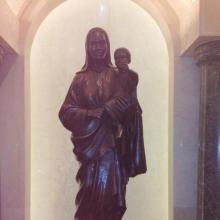
Are Black people mentioned in the Bible? Absolutely. The Bible is a multicultural book. This statement may sound controversial but archeology, history, and the text prove it to be true. It may be difficult to see the black presence in the Bible because you won’t read the terms black or African but you will read the terms Ethiopians, Cushites, Egyptians, and other tribal terms. The Roman Catacombs show biblical scenes painted by first- and second-century persecuted Christians, and their paintings clearly show people of color. What would Roman Christians gain from painting these characters black? What did these early Christians know and accept that seems unbelievable today? It appears that our faith has been distorted. One of the effects of racism is the whitewashing of history and sadly this has taken place even in our biblical studies.

"I bet if I were white then I'd be better off … Isn’t that true?” - Idris
A 9-year-old African-American boy lay on the couch, rubbing his head, and told his dad that if he just went to another school, life would be better. If he were just white, life would be better. He clarified, “I’m not saying I want to … but isn’t that right? That’s what everyone else is saying.”
When a 9-year-old boy can see the sad reality of white privilege and understand that the color of your skin is what defines you in our society, we have a serious problem. We can talk about the progress we have made to move civil rights forward over the past 50 years, and many in my generation are grateful for this movement, but we have a long, long way to go.
According to the Black Boys Report, the high school graduation rate for black males is at 52 percent, while white students graduate at a rate of 78 percent. As a nation, we are proud of our success and power, yet our education statistics do not predict the kind of achievement that we expect for the future of our society. In the midst of a major demographics shift, our nation can no longer afford to accept the growing education gap that has become normative in recent years.
American Promise is a documentary following the lives of two African-American boys from kindergarten through high school. The boys attend Dalton, a private school in the upper east side of Manhattan. As Idris and Seun make their way through years of schooling, the film chronicles the truths of our education system and the lack of social and emotional support offered to students of color in America’s schools. The filmmakers, Michèle Stephenson and Joe Brewster, are the parents of Idris. Through their son’s journey, the hardships of being an African-American boy growing up in today’s society are documented, and struggles of parenting are examined through an entirely new lens.
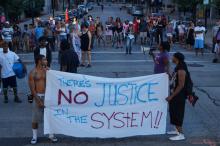
The problem is the systemic injustice inherent in Stand Your Ground laws: just feeling like you are being threatened can justify your response in “self-defense.” Under Florida self-defense laws now, someone can use even lethal force if they “reasonably believe” it is necessary to defend their lives or avoid great harm. How does a jury decide what a “reasonable person” would do under all the circumstances? Even if Dunn really believed there was a gun in the black teenagers’ car and there wasn’t one, he could still be justified in shooting into the car according to Stand Your Ground. The New York Times quoted Mary Anne Franks, an associate law professor at the University of Miami saying, “This trial is indicative of how much of a problem Stand Your Ground laws really do create … By the time you have an incident like this and ask a jury to look at the facts, it’s difficult to re-create the situation and determine the reasonableness of a defendant’s fear.” And unfortunately, the law creates an opportunity for racial factors — whether they’re conscious or not — to trump facts when even one juror who is sympathetic to a defendant’s “reasonable” fear can prevent prosecution.

There are so many people that have gone before me, people that have sacrificed their lives in pursuit of justice and equality. Because of this, I feel a deep sense of commitment to honor them by standing for some of the same things that they did. I am in complete awe of two things that connect deeply for me. The first is the cross and how Jesus gave his life for us all. The second is my ancestors who somehow understood Jesus’ sacrifice and passed it onto me through intense persecution.
I can’t say that I know persecution like my parents, grandparents, and great-grandparents knew. I have been back to southern Alabama many times for family reunions and visited slave graveyards where relatives are buried. This compels me to be and do more with my life. I can’t say I understand why Jesus would choose to become human, walk this earth as a human being, and then die at the hands of his own creations to save those who were crucifying him. However, I do know it pushes me to be and do more with my life. I feel like I would let them down somehow if I didn’t take responsibility for addressing injustice with my life.
My life is not my own. I am the product of sacrifice. I am here because of those who saw beyond themselves and thought personal sacrifice was worth giving up to allow justice to take hold. I am here because Jesus modeled something completely illogical on the cross and then some of my ancestors took that example seriously and repeated it. I have no real right to the life I live. My only recourse is to continue the tradition handed to me in the same way.

I stepped off the elevator and was greeted by three men with hoodies in church yesterday. My shoulders tensed for a few moments. Growing up in New York City, I’ve been groomed in paranoia and 20/20 peripheral eyesight. Yet after taking a second look, I smiled as I admired the theater props: Three hooded figures containing the faces of Hillary Clinton, Jay Z, and Trayvon Martin, with a caption reading, “We are Trayvon Martin.”
Metro Hope Church meets weekly at Harlem’s National Black Theater, so our church gatherings can often be a dance in improvisation as we’re frequently welcomed by new sets. One summer we were greeted by a gigantic “tree” protruding from center stage. It made this preacher’s imagination run vivid with all sorts of sermon possibilities.
But the hooded figures that greeted me last Sunday were a tribute to Trayvon Martin called, Facing our Truth: 10 Minute Plays on Race and Privilege. This month also happens to be the month that Trayvon Martin was born, and a month for celebration of Black History. These convergences do not escape me, nor does the distinct mission of our church in Harlem.
No stranger to dialogue on race and privilege, our church will often reflect on Dr. King who once lamented, “We must face the fact that in America, the church is still the most segregated major institution in America … 11:00 on Sunday morning …we stand at the most segregated hour in this nation.”

With the exception of “WWJD” bracelets, there are few times when outward physical appearance reveals Jesus followers in the public square. Other religions often require their faithful to move through the mundane activities of life outwardly proclaiming the core of their faith. For the traditional Hindi it is the saree or the sherwani. For the Muslim it may be the kurta or hijab; for the traditional Jew the yamaka or headscarf. Every day around the world these men and women move through life, often in cultures unlike their own — marked.
Once a year the global body of Christ reveals itself to the world en masse. Foreheads marked with ashes, the global church moves through the first day of Lent with the sign of the cross in plain view for all to see. In the midst of the mundane, those ashes blend with sweat and soot and reveal to the world just who is a follower of Jesus in their midst.
It is a profound feeling to move through the streets of Washington, D.C., New York, Los Angeles, Cincinnati, or Huntsville, Ala., with your deepest beliefs marked on your forehead.
The Lenten mark of the cross, in tangible form, brings the church into solidarity with Jesus’ 40-day struggle in the wilderness — the place of desolation, the place of waiting and wandering, temptation, and confrontation with the limitations of our human-ness.
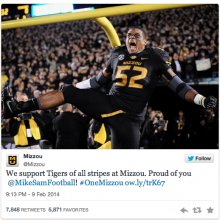
There’s something about Michael Sam that we are missing and I hope the church will see it.
Michael Sam is the college football star who “came out” in an interview with ESPN and the New York Times . He graduated in December and will be drafted in the upcoming NFL draft. Sam was the Southeastern Conference’s co-defensive player of the year and a first-team all-American. He came out to his teammates before the season started and at the end of the year they voted him their most valuable player.
But it’s not his superior football skills that the church should pay attention to. It’s his spirit and his sense of identity.
Throughout his interview on ESPN with Chris Connely, Sam smiles, clearly comfortable in his own skin. A few highlights of the conversation that are worth pointing out:
Indigenous American leaders speak out against the Washington NFL team’s mascot.


The highlight of the Super Bowl for me was Coca-Cola’s "America is Beautiful" commercial. The images of the American landscape are amazing and the song was beautiful. At first I was a bit confused by the different languages singing "America the Beautiful" (I’m slow…), but I caught on about halfway through. When the commercial ended, I looked over at my wife and said, “Wow. That was beautiful … Not worth four million dollars, but that was good.”
For the moment, let’s deal with any cynicism that the Coca-Cola Company is simply trying to sell us their product. Of course they’re trying to sell us their product; that’s why they spent millions on their ad, but along the way, Coke pointed to the reason that I love the United States. I love my country because it is a nation that welcomes the “Other.” Indeed, we haven’t always been good at this, and we still struggle with it, but the United States is a nation of immigrants. Even Native Americans, who have tragically been excluded from the land they’ve lived on for thousands of years, were originally immigrants who were welcomed by this land. This land has a long history of welcoming people into it, and so any act of excluding immigrants goes against its ideal of welcoming the “Other.”
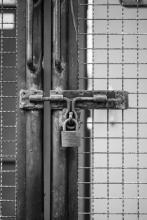
As I stated yesterday, I believe that America’s justice system is broken and in need of desperate repair. One of those areas is the practice of putting our citizens to death, something I believe that all Jesus People should resoundingly oppose.
When I was a conservative evangelical, I was a huge supporter of capital punishment for all of the standard reasons. I even had a quick response when folks correctly brought up the hypocrisy of being against abortion while simultaneously being pro-death penalty, a position I previously argued you can’t hold and still call yourself “pro-life.”
However, when I decided to follow Jesus instead of simply being a Christian who paid him hollow worship while conveniently ignoring the red words, I was forced to abandon my support of the death penalty (and abandon my support of violence in general) as part of Following Jesus 101.
While America’s broken justice system is a complex issue, perhaps the first area we can fix is by abolishing the death penalty in all 50 states. Here’s why I think Jesus People should be leading the charge on this issue:
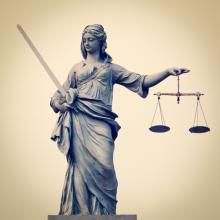
America’s justice system is broken.
Our jails are overflowing, people are receiving life sentences for minor crimes under three strikes laws, racial disparities leave minority populations disproportionately represented in the incarcerated population, and we’re so obsessed with killing that we’re now using untested concoctions of drugs that recently took a condemned inmate more than 20 minutes to finally die.
Our system isn’t working.
It might surprise you however, to understand how we arrived at such a broken justice system.
We got here because of poor theology.
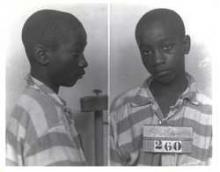
The difficulty of restorative justice, is that some things simply can’t be restored.
Certainly, not 14-year-old George Stinney. He’s been dead almost 70 years.
We can however, restore his name — and sometimes, that’s all restorative justice can do. Restorative justice works to make whole what has been unjustly lost and reassemble that which has been unjustly broken, to the greatest degree humanly possible. While we can’t restore 14-year-old George to life, we can both restore his name and work to restore the community responsible for his death.
Often we forget that restorative justice isn’t just about restoring the one who was wronged; the one who committed the wrong is also need of restoration. In this case, the latter is the state of South Carolina.
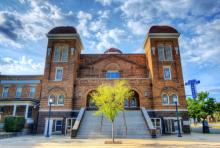
There is no question that our nation is currently deeply divided about a great many issues. In our effort to enshrine him, some may have lost sight that Dr. Martin Luther King Jr. too addressed a nation that was divided. With all the media focus on the 50th anniversary of the Kennedy assassination this past fall, the 50th anniversary of another great national tragedy received little notice. On September 15, 1963, white racists bombed the 16th Street Baptist Church in Birmingham, Ala., killing four young African-American girls who were attending Sunday school.
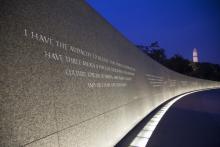
Prophets are always asking questions. Tough questions. Unsettling questions. Questions that they pose to themselves, then try to answer by how they live.
Questions such as:
What’s in our hearts? Are we concerned too much about ourselves and too little about others? Do we believe in love? Why do we give in so readily to bitterness and hatred?
Why do so few have so much, while so many have so little? Aren’t we all diminished by the poverty, discrimination, violence, and the various injustices in our world? Why do we glamorize violence and weapons as solutions to our problems?
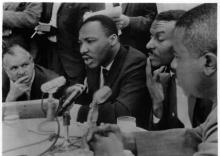
The nation will mark the birthday of the Rev. Martin Luther King Jr. on Monday with speeches, prayers, and volunteer service.
But for decades, retired United Methodist Bishop Woodie W. White has marked the holiday in a more personal way: He writes a “birthday letter” to the civil rights leader who was killed in 1968.
“It was a way to get kind of a year’s assessment on what the nation was accomplishing and not accomplishing in the area of race,” said White, a bishop-in-residence at Emory University’s Candler School of Theology for the last decade.
“I did it because, frankly, I needed to have perspective. I needed to not get discouraged, and I needed it to be affirming of progress in race which had taken place over the course of a year.”